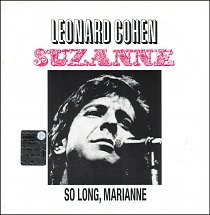Leonard Cohen’s music holds a rare place in popular culture, weaving together poetry, spirituality, and a reflective take on human frailty. His ability to navigate profound themes of love, loss, and longing is evident across his catalog. Take “Suzanne,” one of his earliest and most enduring songs, where Cohen fuses romantic yearning with spiritual overtones. His lyrics, always precise, evoke intimate moments that feel both deeply personal and universal. “So Long, Marianne” offers a similar balance, with its reflective yet warm farewell to a past lover, capturing Cohen’s gift for turning life’s farewells into something poetic.
It’s impossible to talk about Cohen without mentioning “Hallelujah,” a song that has been interpreted countless times, but it’s his original version that remains a complex exploration of faith and doubt. While it may have been covered to the point of ubiquity, Cohen’s rendition holds a quiet intensity, never overselling the emotion, but allowing the listener to find their own place within the song’s deeply human contradictions.
Cohen was often as much a philosopher as he was a songwriter, and “You Want It Darker,” from his final album, stands as a testament to this. The song, released shortly before his death, feels like a stark and meditative final statement, confronting mortality head-on without flinching. Yet, Cohen never fully wallows in despair—songs like “Dance Me to the End of Love” and “Tower of Song” remind us of his wit and the subtle humor that often appeared in his work, even when tackling life’s heavier topics.
Beyond his introspective ballads, Cohen ventured into political commentary, as seen in “The Future” and “Democracy.” These songs, though written decades ago, feel eerily prescient today, as Cohen critiques societal decay with the same sharpness he uses to dissect personal relationships. “First We Take Manhattan” mixes defiance with a sense of foreboding, and “Everybody Knows” similarly casts a cynical eye on the world’s broken promises.
Even in his later years, Cohen’s voice—both literally and metaphorically—grew deeper and richer. Songs like “Going Home” and “Happens to the Heart” reflect a man nearing the end of his journey, but still curious, still searching. He never stopped asking the big questions, and in the process, Cohen gave his audience not just songs, but reflections on what it means to be alive, to love, to suffer, and ultimately, to accept it all.
